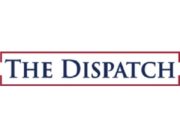This piece originally appeared in PennLive/The Patriot News on April 12, 2024.
Want to spend $10 to promote your Facebook post, make a poster for your window, or run off a few flyers at Office Depot to support a school board candidate? Under a proposal moving through the legislature, you’d have to fill out a complicated form and file it with the government—which would then display the form on the internet.
Last week, Pennsylvania’s state House State Government Committee advanced a dangerous, anti-free speech bill guaranteed to invite litigation paid for by Keystone State taxpayers.
House Bill 1472 would deter average Pennsylvanians out of speaking out about candidates by forcing them to navigate the bureaucracy.
Under the bill, someone who spends any amount on such advocacy would be forced to comply with onerous campaign finance reporting requirements or risk being fined.
The reporting threshold is so low that even the ten cents you paid your local library to print a single page that you display on a window could trigger the reporting.
Pennsylvania already has a too low reporting threshold. The current reporting requirement is an aggregate total of a mere $100 or more in a calendar year. Similarly, the current reporting threshold for late independent expenditures is just $500. Under HB 1472, reporting is triggered by a single cent, making a bad situation worse.
And because this bill is so counterintuitive — no one in their right mind would think they need to inform the government they are speaking out on such a small scale — most people will have no idea they are violating the law. Those who are aware will be discouraged from speaking for fear of improperly complying with the regulation. Heaven forbid, you fill out the form incorrectly and end up with a fine anyway.
Americans should not need to consult lawyers to speak about candidates. It’s ridiculous and antithetical to the First Amendment.
The motivation behind this outlandish policing of political speech seems to be overblown fears about “dark money, ” a pejorative term for spending on ads urging the election or defeat of candidates by nonprofit groups.
Despite the misleading rhetoric and persistent mudslinging against nonprofit advocacy, nonprofit spending comprises a very small percentage of total campaign spending, the groups already disclose a great deal of information about their activities, and such spending is severely limited by tax rules that distinguish multi-purpose nonprofits from political committees. But the truth is inconvenient for fearmongering politicians.
Nonprofits are an effective tool for advancing important causes. An ordinary person without much social or political clout can amplify her voice by joining others with shared views and, together, speak truth to power. If Pennsylvania lawmakers have their way, it will be harder for these groups to attract new supporters and engage in advocacy. That would hurt people challenging the status quo and benefit political incumbents. We should all be suspicious of such a result.
Even if the wildly overhyped fears about evil nonprofit forces were true, lawmakers went overboard proposing a one-cent threshold. A soccer mom who spends $50 on custom cookies depicting the face of a candidate isn’t really the kind of threat to democracy they had in mind, is it? The same goes for a group of citizens who only spend $10.99 for a website, or $0.01 on a single paperclip to organize materials.
The government has no business demanding paperwork from people spending such low amounts on elections. Lawmakers in Harrisburg should stop embarrassing themselves and support free speech.














